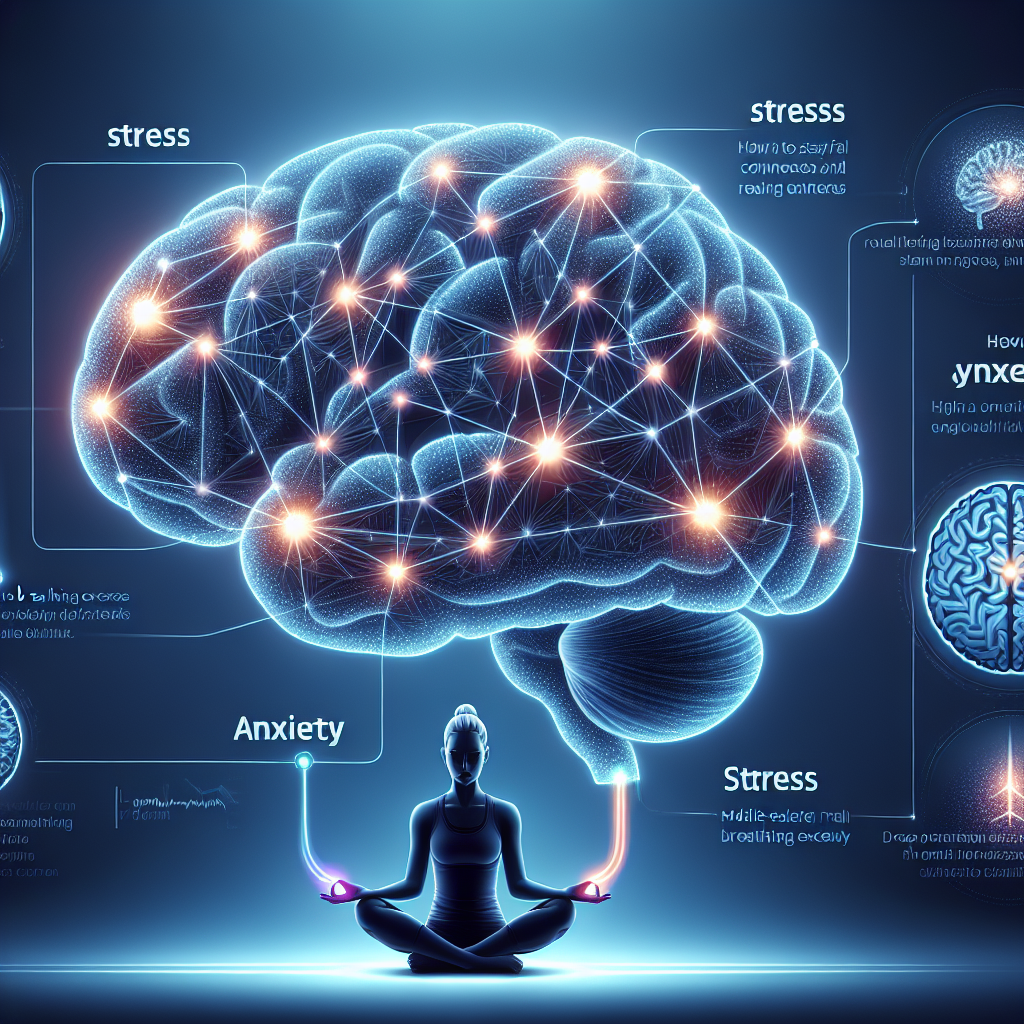In our fast-paced world, stress and anxiety have become commonplace. With deadlines to meet, bills to pay, and personal relationships to maintain, feeling overwhelmed can sometimes feel like a part of life. But have you ever stopped to consider how these emotional states impact your brain function? Understanding this connection is crucial for maintaining mental acuity and sharpness. This article dives deep into the relationship between stress, anxiety, and cognitive performance, while also providing tips on how to keep your brain sharp despite life’s challenges.
The Science Behind Stress and Anxiety
Stress and anxiety are physiological responses that trigger the body’s fight-or-flight system. When faced with a perceived threat, the body releases hormones like cortisol and adrenaline. These hormones are essential for immediate survival, but when they become chronic, they can wreak havoc on the brain.
The Hormonal Impact on the Brain
Chronic stress results in prolonged exposure to cortisol. Elevated cortisol levels can lead to changes in brain structure and function. For example, a study conducted by the University of California, Berkeley found that high cortisol levels can shrink the hippocampus, an area responsible for memory and learning. Additionally, anxiety can impair the prefrontal cortex, which is primarily responsible for decision-making and emotional regulation.
The Effects of Stress and Anxiety on Cognitive Function
Understanding the negative effects of stress and anxiety on cognitive functions is crucial. Here are some key areas affected:
1. Memory
Stress and anxiety can lead to difficulties with both short-term and long-term memory. You might find it hard to remember appointments, names, or even where you placed your keys. This can lead to frustration and further anxiety, creating a vicious cycle.
2. Attention
Anxious thoughts can hijack your focus, making it challenging to complete tasks or absorb new information. This can be particularly detrimental in work or academic settings where concentration is essential.
3. Decision-Making
Stress can cloud judgement and lead to impulsive decisions. When the brain is overwhelmed, it may resort to fight-or-flight responses rather than evaluating situations thoughtfully.
How to Stay Sharp in the Midst of Stress and Anxiety
While stress and anxiety are unavoidable at times, there are several effective strategies to help you maintain sharp cognitive function. Let’s explore some of these:
1. Mindfulness and Meditation
Mindfulness practices such as meditation can help reduce cortisol levels, allowing for better emotional regulation. Just 10 minutes a day of focused breathing can make a significant difference in your overall well-being and cognitive performance.
2. Physical Exercise
Regular physical activity can boost endorphin levels, which naturally alleviate stress and anxiety. Aim for at least 30 minutes of moderate exercise most days of the week. Activities like jogging, yoga, or even walking can be incredibly beneficial.
3. Proper Nutrition
Your diet plays a substantial role in brain function. Consuming a balanced diet rich in omega-3 fatty acids, antioxidants, and vitamins can promote brain health. Foods like fatty fish, nuts, berries, and leafy greens are excellent choices.
4. Quality Sleep
Sleep is often the first casualty when stress hits. Prioritizing restful sleep can help the brain recover and restore. Aim for 7–9 hours of good-quality sleep every night. Establishing a calming nighttime routine can improve sleep quality.
5. Social Connections
Building and maintaining social relationships can provide emotional support and reduce feelings of isolation and stress. Make time for friends and family, whether in-person or virtually.
Conclusion
The connection between stress, anxiety, and brain function is intricate but essential to understand. While it’s natural to experience stress and anxiety, it’s vital to implement strategies to manage these emotions effectively. By practicing mindfulness, exercising regularly, eating well, prioritizing sleep, and nurturing social connections, you can help diminish the impact of stress and anxiety on your cognitive functions. Keeping your brain sharp is possible, even in the face of life’s challenges.
Frequently Asked Questions (FAQs)
1. Can stress shrink your brain?
Chronic stress can lead to elevated cortisol levels, which may shrink certain areas of the brain, particularly the hippocampus involved in memory and learning.
2. What are some immediate ways to reduce stress?
Deep breathing exercises, taking a short walk, engaging in a hobby, or simply stepping away from a stressful situation can provide immediate relief.
3. How long does it take to see improvements in mental function from lifestyle changes?
Improvements can often be felt within a few weeks of adopting healthier habits, though individual results will vary.
4. Does anxiety always lead to poor decision-making?
While anxiety can cloud judgment and lead to impulsivity, not everyone will respond the same way. Mindfulness practices can help improve decision-making even in stressful situations.
5. Is it possible to completely eliminate stress and anxiety?
While it may not be possible to eliminate them entirely, effective management strategies can significantly reduce their impact on your life.





